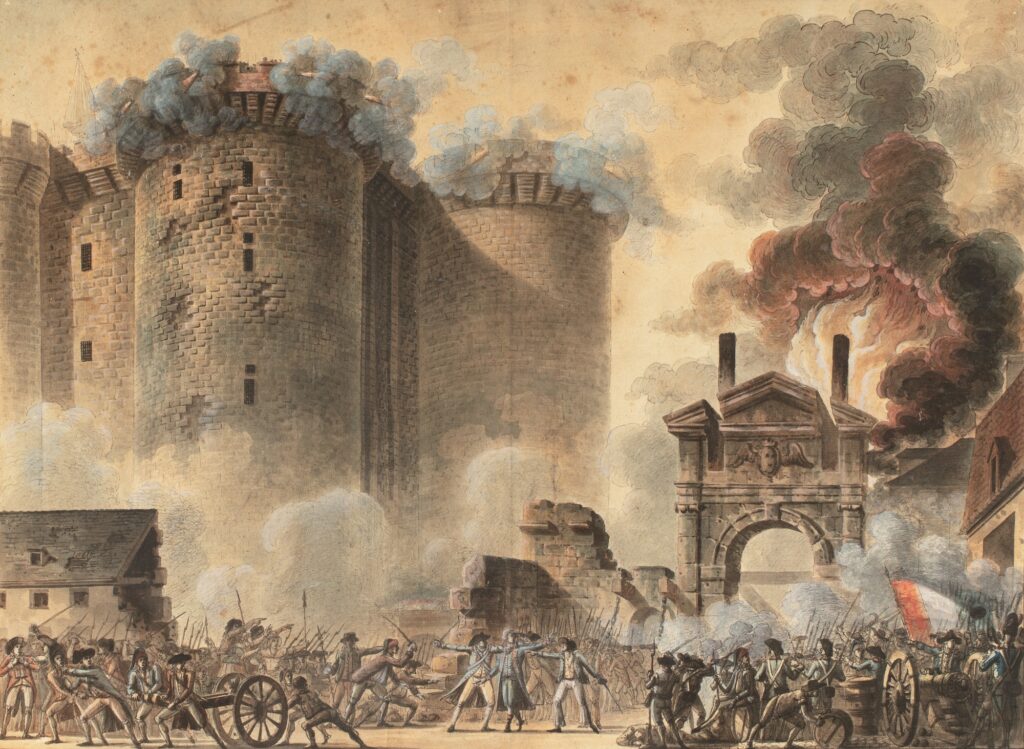14 July: The day to celebrate the worldwide struggle against oppression and tyranny.
By Ayush Sachan
One of the most intriguing events ever to take place on July 14 is undoubtedly the Storming of the Bastille in 1789.
This single act not only ignited the French Revolution, but also came to symbolize the worldwide struggle against oppression and tyranny. The Storming of the Bastille in 1789. This single act not only ignited the French Revolution, but also came to symbolize the worldwide struggle against oppression and tyranny. But what exactly happened?
Before talking about the Storming of the Bastille it is important to look into the events before and get some historical context on why was France on the edge.

Economic hardships, Food shortages and Political awakening
France was a monarchy, under King Louis XVI, had racked up immense debts, partly from lavish court spending at Versailles and costly wars (especially aiding the American Revolution of 1765-1783). Taxes fell mostly on the common people (the Third Estate), while the clergy and nobility (the First and Second Estates) were largely exempt. On top of that the poor harvests in the 1780s sent bread prices soaring. Hunger and unemployment were widespread, fueling people’s anger towards the monarch even more.
and ironically the American revolution that the French monarchy at that time supported became a symbol of enlightenment ideas, liberty, equality, fraternity were people’s most demands. The American Revolution had inspired people to challenge monarchies and demand representation.
What was Bastille? and what was its significance?
The Bastille was a medieval fortress and prison in Paris, though it held only 7 prisoners at the time of storming, it was a potent symbol of royal tyranny, since political dissidents had long been locked up there without trial. So storming Bastille was not only important but also symbolic.
In early July, Louis XVI dismissed his popular finance minister Jacques Necker, who was sympathetic to reformers, this was seen as a threat by many as the only minister who was sympathetic to the Parisians. On 13 July, Parisians began arming themselves, seizing weapons from gunsmiths and public armories. On 14 July, a crowd of around 700–1,000 Parisians marched to the Bastille, seeking gunpowder to arm the muskets they’d seized the previous day.
After tense negotiations failed, the crowd surged forward around midday. Fighting broke out. The fortress’s small garrison fired cannon and musket volleys into the mob, killing nearly a hundred. Reinforced by some French Guards (soldiers who had defected to the revolutionary cause), the crowd stormed the gates. By late afternoon, the governor Bernard-René de Launay surrendered. He was dragged out and killed by the crowd, who paraded his head on a pike.
The storming of the Bastille didn’t just change France it electrified Europe and the world. Monarchs feared it a-lot and were terrified of the radicals who cheered on it. It set the stage for:
- The Declaration of the Rights of Man and of the Citizen (August 1789), which declared freedom and equality.
- The abolition of feudalism.
- Ultimately, France’s transformation from absolute monarchy to republic (though with violent turns, including the guillotine and the Reign of Terror).
The storming of the Bastille on 14 July 1789 was far more than the fall of a grim old fortress it was the dramatic spark that set France ablaze and changed the course of global history.
In a single day, ordinary citizens rose against centuries of absolute monarchy and declared that power would no longer flow from kings and prisons, but from the will of the people.
Though the French Revolution would soon spiral into turmoil, bloodshed, and complex contradictions, the legacy of that day endures as a universal symbol of resistance against oppression. Every Bastille Day, when fireworks light up the skies of France, they do more than commemorate a prison’s capture they celebrate the eternal human drive for liberty, equality, and the right to shape one’s own destiny.
